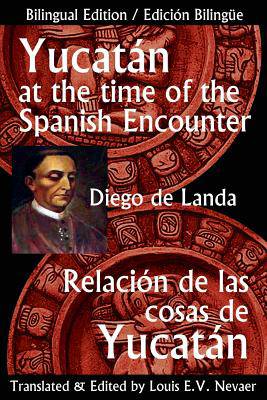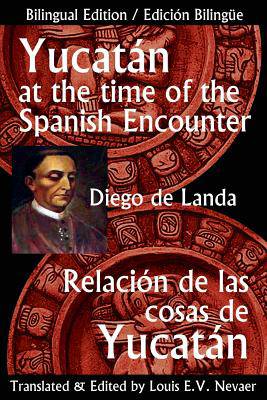
- Retrait gratuit dans votre magasin Club
- 7.000.000 titres dans notre catalogue
- Payer en toute sécurité
- Toujours un magasin près de chez vous
- Retrait gratuit dans votre magasin Club
- 7.000.0000 titres dans notre catalogue
- Payer en toute sécurité
- Toujours un magasin près de chez vous
Yucatan at the Time of the Spanish Encounter
Relacion de Las Cosas de Yucatan
Diego De Landa
Livre broché | Multilingue
26,45 €
+ 52 points
Description
In an ambitious new translation of Diego de Landa's Account of the Things of Yucatán (Relación de las cosas de Yucatán), the editor revises and updates the language for the contemporary reader of English. In the process he captures the narrative power and intensity, the nuances and subtleties of meaning and the emotions of Landa's history of Yucatán at the time of Spanish arrival, conquest, and settlement of the peninsula. Landa's observations speak of his intellectual curiosity about and of his respect for the First Peoples of Yucatán. For instance, he credits the vast architectural legacy, from the pyramids to the monumental ceremonial centers, to the Mayas' ancestors, and not other "nations." At the same time, Landa surmises that the Maya of centuries past were healthier, better fed, and enjoyed a more diverse diet compared to the Maya of his time. This has only recently been confirmed through the analysis of human remains dating back to the Classic Maya period. These intellectual insights, however, stand in sharp contrast with Landa's conviction that the devil visited Yucatán, which led him to establish an Inquisition, for which he was denounced and made to defend himself before the Council of the Indies in Spain. This episode remains arguably the darkest one in Yucatán's post-Hispanic history. These beliefs about the presence of the devil, however, as the Salem witch trials a century later demonstrate, were common throughout the world at the time. Now, for the first time, both a new English-language translation and Landa's original Spanish-language manuscript are published in the same volume, offering readers the opportunity to read the text in both English and Spanish. This is the timeless historical work that constitutes the foundation of our understanding of the ambivalence that characterizes the co-existence of the Maya and Spaniards in Yucatán, an ambivalence that in many ways continues to the present day.
Spécifications
Parties prenantes
- Auteur(s) :
- Editeur:
Contenu
- Nombre de pages :
- 300
- Langue:
- Multilingue
Caractéristiques
- EAN:
- 9781939879028
- Date de parution :
- 15-05-13
- Format:
- Livre broché
- Format numérique:
- Trade paperback (VS)
- Dimensions :
- 152 mm x 229 mm
- Poids :
- 439 g

Les avis
Nous publions uniquement les avis qui respectent les conditions requises. Consultez nos conditions pour les avis.






